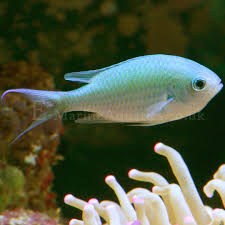1. The Dragon in Confucian Thought

a) The Dragon as a Symbol of Wisdom and Virtue
In Confucianism (儒学, Rúxué), the dragon (lóng, 龙) represents wisdom, moral excellence, and the highest ideals of human virtue. Confucius (孔子, Kǒngzǐ), the founder of Confucianism, admired the dragon as a metaphor for the noble and virtuous person (君子, jūnzǐ)—someone who embodies benevolence (仁, rén), righteousness (义, yì), propriety (礼, lǐ), wisdom (智, zhì), and faithfulness (信, xìn).
Confucian philosophy values self-cultivation and ethical leadership, and the dragon embodies these ideals by rising above the ordinary and achieving greatness. Unlike Western mythology, where dragons are often fearsome creatures, in Confucianism, the dragon is a respected symbol of intelligence, self-discipline, and harmony.
b) Confucius’ Reflection on the Dragon
One of the most famous Confucian references to the dragon comes from Confucius himself. According to the Records of the Grand Historian (史记, Shǐjì) by Sima Qian (司马迁):
- When Confucius met Laozi (老子), the legendary founder of Taoism, he was deeply impressed and later said: “I understand how birds can fly, how fish can swim, and how animals can run. But the dragon? I cannot understand how it rises into the sky on the wind and clouds.”
Here, Confucius compares Laozi to a dragon, emphasizing his profound wisdom and ability to transcend worldly limitations. This metaphor highlights the dragon as an ideal of intellectual and spiritual enlightenment, which aligns with Confucian aspirations for self-improvement and superior moral conduct.
2. Dragons in Confucian Governance and Leadership
a) The Dragon as a Symbol of the Sage-King
Confucianism strongly emphasizes benevolent leadership, and throughout Chinese history, the dragon became a symbol of the ideal ruler.
- In Confucian political philosophy, the ruler should act as a moral example, guiding the people through virtue (德, dé) rather than force.
- The dragon embodies this ideal because it is majestic, powerful, yet benevolent—controlling rain and rivers but never abusing its strength.
The connection between the dragon and the Confucian ruler was so strong that by the time of the Han Dynasty (206 BCE – 220 CE), emperors were called “True Dragons” (真龙天子, Zhēnlóng Tiānzǐ), reinforcing the idea that their rule was divinely sanctioned and morally justified.
b) The Dragon as a Representation of Imperial Authority
Confucian scholars played a crucial role in shaping China’s imperial bureaucracy, and dragon imagery became central to imperial symbolism:
- The Emperor’s Throne was called the Dragon Throne (龙椅, Lóngyǐ).
- Imperial Robes were adorned with dragon patterns, especially the five-clawed dragon, a symbol reserved for the emperor.
- Confucian officials were also associated with lesser dragons, symbolizing their role as servants of the emperor and guardians of moral governance.
Confucian teachings emphasized that an emperor must rule with justice and virtue. If a ruler became corrupt, it was believed that the dragon’s favor would be lost, leading to natural disasters or political upheaval. This belief reinforced the Mandate of Heaven (天命, Tiānmìng), a Confucian concept stating that an emperor’s legitimacy depended on his moral conduct.
3. The Role of Dragons in Confucian Education
a) The Dragon as a Model for Scholars
Confucianism places great emphasis on education and self-cultivation, and dragons became a symbol of academic success and intellectual mastery.
- Confucian scholars aspired to “ride the dragon”, meaning to attain wisdom and rise above mediocrity.
- Ancient Chinese academies often featured dragon carvings and motifs, symbolizing the pursuit of knowledge.
The phrase “望子成龙” (wàng zǐ chéng lóng)—meaning “hope one’s son becomes a dragon”—is a Confucian-inspired expression still used today, referring to parents’ aspirations for their children to achieve greatness through education.
b) Dragons in Confucian Examinations
During China’s imperial era, the Civil Service Examination System (科举, Kējǔ) was deeply influenced by Confucian ideals.
- Scholars who excelled in these exams were compared to dragons emerging from the depths.
- The highest-ranking candidates were said to “leap through the dragon gate” (鱼跃龙门, Yú Yuè Lóngmén)—a reference to a legend where a carp transforms into a dragon after swimming upstream.
This story became a Confucian metaphor for perseverance, diligence, and scholarly success. Even today, the Gaokao (高考, China’s national college entrance exam) is sometimes compared to this dragon gate challenge.
4. Dragons in Confucian Rituals and Ancestral Worship
a) The Dragon in Confucian Temples
Confucian temples (文庙, Wénmiào) often feature dragon motifs as a tribute to Confucius and his teachings.
- Stone dragons guard the temple entrances, symbolizing wisdom and protection.
- Carvings of dragons on Confucian altars represent the connection between heaven, earth, and human virtue.
The Confucius Temple in Qufu (曲阜孔庙), one of the most famous Confucian sites, has numerous dragon-adorned pillars and reliefs, reflecting the dragon’s role as a guardian of knowledge and moral order.
b) Dragons in Ancestral Worship
Confucianism emphasizes filial piety (孝, xiào)—respect for one’s ancestors—and dragons play a role in ancestral rites:
- Many ancestral halls have dragon engravings, symbolizing family honor and continuity.
- The Dragon Dance (舞龙, Wǔ Lóng) is often performed at Confucian festivals, signifying prosperity, harmony, and respect for heritage.
5. The Modern Influence of Dragons in Confucian Culture
Even in contemporary Chinese society, the Confucian association with dragons remains strong:
- Chinese leaders and scholars are still metaphorically called “dragons,” reflecting Confucian ideals of wisdom and leadership.
- Educational institutions use dragon imagery to inspire students to pursue knowledge and moral excellence.
- Confucian business ethics emphasize “dragon-like qualities” such as integrity, wisdom, and long-term vision.
Conclusion
The dragon in Confucianism is far more than a mythical creature—it represents the ideal ruler, the noble scholar, and the virtuous individual. Whether in ancient philosophy, governance, education, or modern culture, the dragon remains a timeless symbol of Confucian wisdom, moral integrity, and intellectual pursuit.









